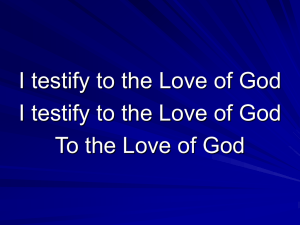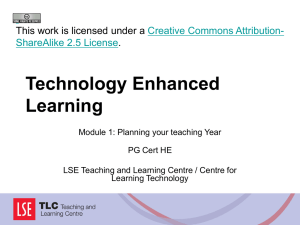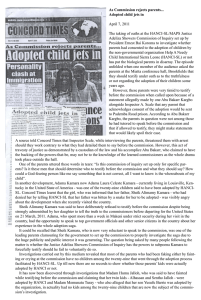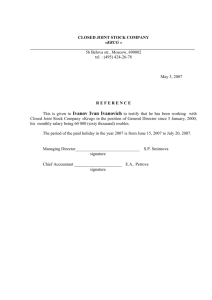33 Sunday in Ordinary Time November 14, 2010 10 AM Liturgy
advertisement
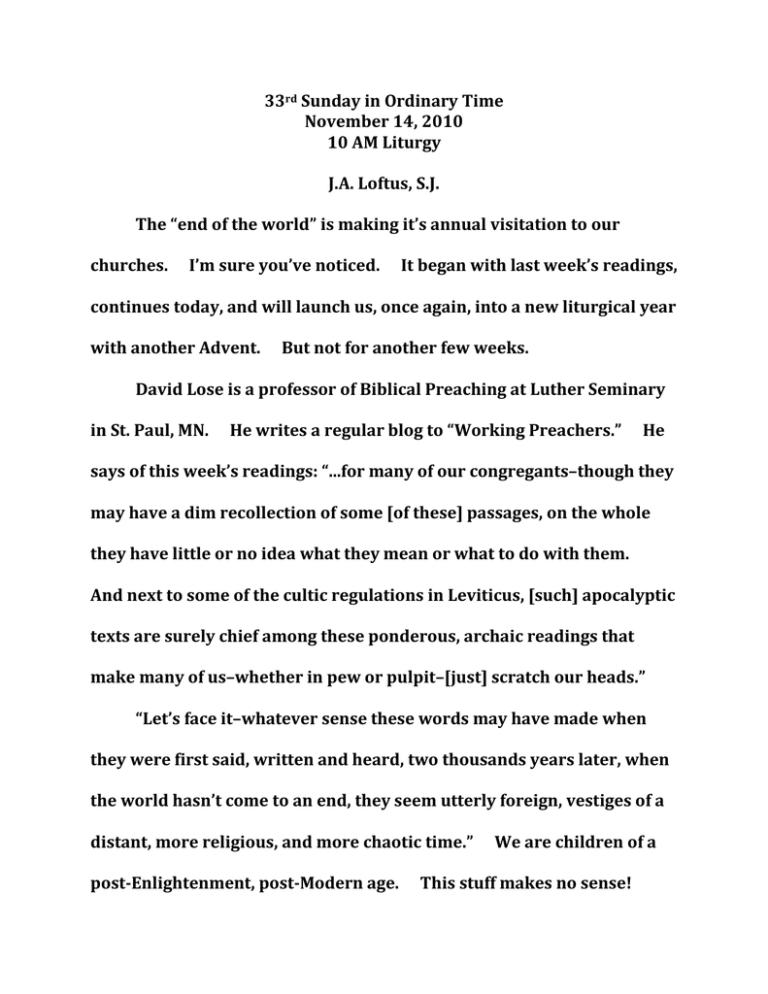
33rd Sunday in Ordinary Time November 14, 2010 10 AM Liturgy J.A. Loftus, S.J. The “end of the world” is making it’s annual visitation to our churches. I’m sure you’ve noticed. It began with last week’s readings, continues today, and will launch us, once again, into a new liturgical year with another Advent. But not for another few weeks. David Lose is a professor of Biblical Preaching at Luther Seminary in St. Paul, MN. He writes a regular blog to “Working Preachers.” He says of this week’s readings: “...for many of our congregants–though they may have a dim recollection of some [of these] passages, on the whole they have little or no idea what they mean or what to do with them. And next to some of the cultic regulations in Leviticus, [such] apocalyptic texts are surely chief among these ponderous, archaic readings that make many of us–whether in pew or pulpit–[just] scratch our heads.” “Let’s face it–whatever sense these words may have made when they were first said, written and heard, two thousands years later, when the world hasn’t come to an end, they seem utterly foreign, vestiges of a distant, more religious, and more chaotic time.” post-Enlightenment, post-Modern age. We are children of a This stuff makes no sense! History can sometimes help–a little bit anyway. contemporary of so-called Third-Isaiah. the Jewish community. immanent. Malachi was a They lived in tough times for It did seem like the end of the world might be And Luke, writing sometime between the years 80-85, had already seen the complete destruction of Jerusalem and the Temple. Their world, too, had already started to crumble. only goes so far. visions? History helps, but it What are we supposed to think of the apocalyptic How do they affect our lives today? Some questions: Where are our worlds beginning to crumble? Where is our faith so tested? in the midst of chaos? Or do they at all? Where do we look for a god to speak to us These are questions still asked in our own time, in our own days, by many people. These questions remain relevant. Just ask anyone living in Haiti these days (earthquakes, hurricanes, pestilence and plague). Or ask someone out of work, having lost a once secure footing with employment, family, friends, and with self-esteem. Where is God? is still a painfully relevant question. Jesus says in today’s gospel: opportunity to testify.” “[All] this will give you an To testify? To what? Perhaps the question posed to us all is this: “is it possible for us to see, claim, and testify to 2 God’s work amid the various set backs, challenges and even tragedies we face?” To be sure, only a simplistic faith believes that God causes the calamities we endure. in them? But is God active in them? Is God’s voice heard Where is there help, comfort, healing in them? Testify to the perhaps faint whisper that is surely the voice of God echoing through the pain of the centuries. Can any of us testify to that life spark in the midst of apparent hopelessness? And can we hear Jesus say further today: “Do not worry what to say; just know that I will give you words and wisdom in that moment.” Sometimes the apocalypse comes early in a person’s life. hear the winter name of God in those moments? God’s healing and help? Can I And can I testify to Can I make difficult choices today that will speak to those days to come? Or to those days already here? Can the image of the end-times urge me to live more conspicuously for today? I leave you with two of Mary Oliver’s most recent poems for her collection Swan. The first speaks rather directly of death and loss. It is called “When.” When it’s over, it’s over, and we don’t know 3 any of us, what happens then. So I try not to miss anything. I think in my whole life, I have never missed the full moon Or the slipper of its coming back. Or a kiss. Well, yes, especially a kiss. And the second is called “Whispered Poem.” I have been risky in my endeavors, I have been steadfast in my loves; Oh Lord, consider these when you judge me. Perhaps contemplating “the end of the world” each year is but an invitation: to be risky in our endeavors, to be steadfast in our loves, and to savor not only the full moon, but each kiss as a gift and a Promise. Can we testify to God’s presence in it all? 4
